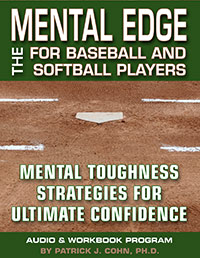How to Deal With Distractions in Baseball
Why is pitching a no-hitter so difficult for pitchers?
You might question your ability to continue being perfect on the mound.
Do you start looking ahead to the outcome? What it’ll mean to throw a no-hitter and how good that will feel?
Cardinals’ pitcher, Michael Wacha took a no-hitter into the 9th inning against the Pirates on Sunday at Busch Stadium.
In 2001, Cardinals’ Bud Smith had a no-hitter on the road. Since then, a no-hitter has been taken into the 9th inning just twice; Wacha both times.
Only two no-hitters, both by Forsch, have been thrown in St. Louis since 1924. A no-hitter, to say the least, has been rare in Cardinal history.
On Sunday, against the Pirates, Wacha was almost the first to throw a no-hitter in over 90 years.
In the top of the 9th, Pittsburgh pinch-hitter, Colin Moran lined a shot over Wong’s glove to end the thus far, flawless game by Wacha.
Cardinals’ manager, Mike Matheny commented on Wacha’s outstanding performance. He said:
“He smelled it. He had it in his sights.”
“It was a clinic on how to pitch. He’s tough-minded, and he’s able to eliminate some of the distractions or the doubt or whatever starts to creep into guys’ minds when they start flirting with something very, very unique.”
Following the game, Wacha stated: “Maybe next time.”
Similar to Matheny’s statement, pitchers, or baseball players in general get distracted by their spectacular performance or the outcome or start to doubt their ability to continue playing at that level.
A pitcher might be throwing a no-hitter going into the 7th inning and they get excited about the way they’re performing; anxious to get it done.
They may also realize what they have going and start to focus on the outcome; pitching a no-hitter.
These become distractions and they struggle to continue focusing on one pitch at a time. They shift focus away from what got them in the no-hitter position in the first place; the laser-like, process-oriented focus.
On the other hand, a batter might be on their way to hitting for the cycle. In their fourth at-bat, they realize what’s going on or maybe a teammate commented on their performance so far.
They begin to think about their hit and what it needs to be, rather than continuing to play freely.
When a baseball player is having an exceptional performance, and notices it, they can easily become distracted by factors that pull them away from the game that got them to that point.
To help bring that concentration back to a “one-pitch-at-a-time” mindset, focus on your very next task at hand.
If you’re pitching, what do you need to think about for the next pitch?
If you’re batting, what do you need to focus on for your on-deck preparation and in the box?
Use a keyword that directs your attention, such as, “Target,” “Just throw,”” “See the ball,” “Trust,” etc.
Instead of trying to block out distractions, direct your focus to what you WANT to do during your pre-pitch routine.
Related Sports Psychology Articles
- How Ballplayers Can Overcome Distractions
- How to Have a Playoff Mindset
- Your Mindset During Crunch Time
*Subscribe to The Sports Psychology Podcast on iTunes
*Subscribe to The Sports Psychology Podcast on Spotify
Get The Mental Edge for Baseball and Softball
If you have trouble taking your practice game to competition and under perform in games, your mental game might be the culprit! Baseball and softball players contact me everyday wanting to know why they become scared, anxious, afraid to make mistakes, and lack trust in their skills during games…
You might have a ton of physical talent and perform great in practice, but if you can’t get the job done when it counts, something is missing and the problem is an inferior mental game–not talent or motivation.
We’ve spent the last six months developing a program to teach you how to improve your mental game in 8 easy-to-apply lessons–the same TOP lessons that I teach to baseball and softball players everyday in my one-on-one mental coaching program!


